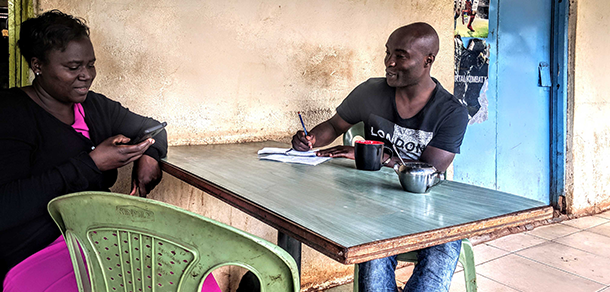New research on digital ID in the developing world conducted in Africa, Asia
01 August, 2018
category: Biometrics, Digital ID, Government
Digital ID provider, Yoti, conducted research on digital ID in the developing world and shared preliminary results in a series of blog posts titled, Digital identity in the last mile. The results suggest that while there is great promise for betterment of service delivery and life in general for struggling populations, there is a massive gap in understanding and acceptance.
Identity sits at a pinch-point which everyone we interviewed saw as vital to their work. Across the board – from community development to microsavings, and disaster response to health – everyone agreed that bad ID solutions hold back promising projects
The first project saw a researcher familiar with African environments raising identity-related issues with stakeholders in ten countries – Kenya, Uganda, Tanzania, Liberia, Somalia, Zambia Ethiopia, South Sudan, Rwanda and Malawi. These countries have differing rates of digital technology penetration, and the researcher talked with organizations focused on education, HIV/AIDS and health, water/sanitation, sport and economic development.
Subjects were asked to share their experiences with identification and verification, and their overall thoughts on the concept of digital identity in the developing world. It was concluded that there is a wide range of understanding what digital identity is and how it works.
Suggested use cases ranged from digitally identifying infants to save lives from duplicate immunizations to combatting election fraud. Poor Internet connectivity, privacy concerns, and fear of system misuse were consistent across country lines.
In many areas, patient health records are stored only on paper, and if a patient visits a health facility without their book or card, locating records is difficult or impossible. Clinicians wanted digital ID to ease this verification and record access problem.
Digital ID in developing world: Asia
Moving to Asia, another research effort interviewed NGO workers from 11 different organizations, working in 7 different countries. They were asked, “how they managed participant identity information, what tools and systems they use, what problems they face in handling IDs, and what opportunities they could see for improving the way they handle IDs in future,” says the Yoti blog.
Common problems surfaced related to identity across the interviews. They include:
Documentation: Identity is often confirmed using documents that only exist as single copies and are hard or impossible to obtain.
Verification: Local officials must confirm identities on a case by case basis, and when the process fails people are prevented from obtaining a benefit.
Fraud: Poor identity solutions often mean resources are poorly distributed. People appear on participant lists more than once, and verification is seen burdensome so not attempted. All this can lead to corruption and abuse of power.
But improving digital ID in the developing world can change all this. “Identity sits at a pinch-point which everyone we interviewed saw as vital to their work. Across the board – from community development to microsavings, and disaster response to health – everyone agreed that bad ID solutions hold back promising projects,” says the researcher.
Check out the series of posts from the Yoti researchers to read more.




